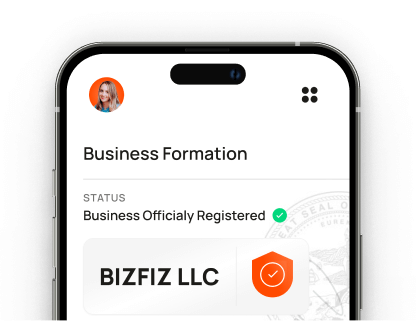


Why Start an HI Corporation?
The state of Hawaii has several different business incentives and programs made available to business owners and entrepreneurs. Your corporation may be able to take advantage of these incentives, provided it meets qualifying criteria.
For example, the Hawaii State Trade Expansion Program (HiSTEP) program offers comprehensive export assistance, readiness, counseling and training that leads into a menu of targeted and individualized activities designed to generate new export sales for participating small businesses.
For many entrepreneurs looking to start a larger business, an HI incorporation may be the best choice. As a corporation, your business is able to buy and trade stock, and when it comes to excess profits, corporations offer more flexibility than a limited liability company (LLC). A corporation is allowed to pass income and losses to its shareholders, who report taxes on an individual tax return at ordinary levels.
Is an LLC Better Than a Corporation?
It all depends on your business goals. For smaller businesses, limited liability companies are usually a better option. An LLC is typically easier to set up and receives many of the same benefits as corporations, but with less regulation.
Learn more about forming a Hawaii LLC so you can decide which business entity is right for you.
Benefits of Forming a Hawaii C Corporation
It offers you numerous advantages, including but not limited to:
Offers the strongest form of liability protection possible by insulating your personal assets and finances from business debts, obligations, damages, bankruptcy or other liabilities
Several options to create, buy, sell or transfer stock, including publicly
The ability to issue more than one type of stock
The ability to raise more funds by issuing more stock
The ability to sell stock to investors inside and outside the U.S.
Benefits of Forming a Hawaii S Corporation
It offers several advantages similar to those provided by a C Corp including, but not limited to:
Options for creating, transferring and selling stock, though not as many as a C Corp
The capacity for up to 100 shareholders
Simpler rules than those that apply to C Corporations
Easy transfer of ownership simply by selling your stock
The possibility of saving money by allowing you to pay less self-employment tax
Within our guide, you’ll find information on naming your corporation, getting a Registered Agent, the fees you’ll need to pay, business taxes and much more. We also cover what you'll need to register your corporation and how you'll interact with the Department of Commerce and Consumer Affairs in Hawaii.
Start a Business in Hawaii Checklist
To help you along the way, use our Starting a Business checklist to keep track of everything you need to do to get your business up and running.
How to Form an HI Corporation Yourself in 6 Steps




On this page
How To Guide
Step 1: Choose a Unique Business Name and Complete a State Business Search
Every Hawaii corporation must have a unique name that hasn't already been claimed by another business in the state. If you’re finding it difficult coming up with a name, try using our Business Name Generator to gather ideas. You'll need to follow a few naming rules, which you can read about in detail on the Hawaii Corporation Names page.
Once you’ve landed on a name, you’ll need to make sure it’s available in Hawaii. To see whether another company in the state is using your desired business name, use our tool to do a Hawaii entity search. Or, carry out a name search on the state's website.
We Can Check Hawaii Corporation Name Availability for You
Use Bizee's Business Name Search Tool
Step 2: Provide an Official Business Address for your Corporation
All Hawaii corporations must have a designated address. This could be the address of your home (if you’re running the company from your residence), a building where your office is located or any physical address of your choice. The address can be outside the state of Hawaii and can be a P.O. Box.
You may also be able to use a virtual mailbox for your business address. Bizee can provide you with a Hawaii virtual mailbox where we'll receive your mail on your behalf and scan it for your online review. This can be especially helpful if you run a home-based business and don't want your home address published as part of your business public record.
Step 3: Assign a Registered Agent
A Registered Agent is someone who receives official correspondence and is responsible for filing reports with the Hawaii Department of Commerce and Consumer Affairs (DCCA). Every Hawaii corporation is required to have a Registered Agent.
You may fill this position yourself, assign another manager in your business or use a Registered Agent service. If your Registered Agent in Hawaii is a person, they must have a physical street address in Hawaii and must be available during business hours to receive important documents on behalf of your company. You'll appoint your Registered Agent when you file your Articles of Incorporation with the DCCA and formally create your corporation.
All of Bizee’s business formation packages include Registered Agent service. It’s free for the first year and just $119 per year after that. You can also access a digital dashboard to view any document we've received on your behalf.
Step 4: File Your Articles of Incorporation with the Hawaii Department of Commerce and Consumer Affairs (DCCA)
To register your corporation as a Domestic Profit Corporation in Hawaii, you must file your Articles of Incorporation (Form DC-1), along with the appropriate filing fee(s) with the Department of Commerce and Consumer Affairs (DCCA), Business Registration Division.
Here’s what is typically included:
Registrations can be filed online, or by email, mail, or fax.Your Articles of Incorporation can be filed online via the state's digital portal. You can also email, mail, or fax the form to the Office of the DCCA, or Bizee can file it on your behalf. The HI Corporation filing fee is $50.
File by Mail
Department of Commerce
and Consumer Affairs
Business Registration Division
P.O. Box 40Honolulu, HI 96810
File in Person
335 Merchant Street
Room 201
Honolulu, HI 96813
File by Email
breg-doci-filing@dcca.hawaii.gov
File by Fax
(808) 586-2733
You only need to file your Articles of Incorporation in Hawaii once, but once a year thereafter, you need to file an annual report with the DCCA in HI. Bizee can remind you about this every year, or we can do it for you if you have us handle the paperwork.
Let Bizee Handle All the HI Incorporation Paperwork for You for $0 + the State Fee
Incorporate Now for Free
What are the fees and requirements to incorporate in Hawaii?
State Fee
$51*
State Filling Time
3 Weeks
Expedited Filing Time
3 Business Days
*An additional $1 fee imposed by State Archives on permanent records will be collected by Business Registration Division (BREG)
Annual Report
Frequency
Annually
Due Date
The annual report or annual statement due date is dependent on the registration date. If the registration falls between:
- January 1 and March 31, the annual report or statement is due by March 31 of each year;
- April 1 and June 30, the annual report or statement is due by June 30 of each year;
- July 1 and September 30, the annual report or statement is due by September 30 of each year;
- October 1 and December 31, the annual report or statement is due by December 31 of each year
Filing Fee
$15
Step 5: Get an Employer Identification Number (EIN) from the Internal Revenue Service
You'll need an EIN to identify your corporation to the IRS. You'll use this number for filing and paying taxes, submitting payroll information and payments for your employees and opening a business bank account. You can obtain one directly from the IRS, or Bizee can get one for you as part of the HI corporation formation process.
Step 6: Write Bylaws
A set of rules that govern how a corporation will be run, bylaws detail how many directors the corporation will have, whether the board of directors will have annual meetings and what the voting requirements will be, among other things.
Some states legally require companies to create bylaws, and the state of Hawaii is one of them. You won't however need to file your bylaws with the DCCA. Simply keep them with your other business records.
It's always a good idea to write and follow bylaws to protect your business from any future changes and events.
Types of HI Corporations
C Corporation
When you file to start a corporation, by default, it's a C Corp. This is the choice for large businesses that will trade shares in the stock market.
A Hawaii C Corporation will offer you several liability protections, but it will also be required to adhere to numerous strict rules and regulations. It will also likely have a substantial amount of administrative overhead, and won't enjoy as many tax advantages as other corporation types.
Learn more about C Corporations.
S Corporation
Technically, an S Corporation isn't a business entity the way LLCs and C Corporations are. It's a tax filing status. An LLC or a C Corporation can be an S Corporation. It's just a matter of filing a form with the IRS.
The main reason to file as an S Corp is to save money on self-employment taxes. To get an idea of how much money you might save, use our S Corp Tax Calculator.
If you want your Hawaii C Corporation to be treated as a Hawaii S Corporation, file the IRS Election by a Small Business Corporation form, also known as Form 2553 or an S Corp Election form.
Consult with your tax advisor or accountant to determine whether this is your best option.
Learn more about S Corporations.
Compare S Corp vs. C Corp to learn the benefits and drawbacks of both, and decide which one will best suit your needs.
Professional Corporation
Some states, including Hawaii, allow certain occupations to form Professional Corporations. Hawaii's Professional Corporation Act, Title 23, Chapter 415A, §415A-2 defines a Professional Corporation in Hawaii as:
"...a domestic professional corporation for profit; and a "Professional Service" as any service which lawfully may be rendered only by persons licensed under chapters 442, 448, 453, 455, 457, 459, 461, 463E, 465, 466, 471, and 605, and section 554-2."
The chapters listed previously specify a few of the professions permitted to form a Professional Corporation in Hawaii, which include, but may not be limited to:
Check with the Department of Commerce and Consumer Affairs to confirm whether your business should and can be a Professional Corporation.
Foreign Corporation
If your business operates in another state and you want to expand into Hawaii — or vice versa — you’ll need to form a Foreign Corporation.
Learn more about Hawaii Foreign Corporation registration.
Nonprofit Corporation
Charitable organizations can incorporate as nonprofit corporations. This means all the profits they generate are donated to the organization supported by the charity, minus administrative costs.
A nonprofit corporation is also exempt from federal and state taxes, allowing more of the profit to benefit the charity.
Note: Everything in this guide applies to for-profit corporations, and mostly to C Corps and S Corps. Items listed as requirements for forming a corporation may or may not also apply to nonprofits.
Limited Liability Company
Depending on the type of business you want to form, or your personal circumstances and goals, an LLC may be a better option. For example, you may only want to build a small business that you yourself will run with just a few employees and you may not need the options to buy and sell stock.
A Hawaii LLC is usually a better option for a smaller business. It's easier to set up, but it still offers you certain advantages you'd get from a corporation. You can even have your LLC treated as an S Corporation for tax purposes to save you money.
Regardless of which way you choose to go, we can help you with your Hawaii business registration.
Learn more about limited liability companies.
Sole Proprietorship or Partnership
Because there's no real setup involved, these are the simplest types of businesses to set up. If you don't choose to form a separate business entity, by default, you'll have either a sole proprietorship (just you) or a partnership (you and one or more other people).
Neither of these options provide you with any special benefits or liability protections and can leave your personal assets vulnerable. For these reasons, we don't recommend them.
Compare business entity types to decide which one is best for you.
Helpful Resources from the State of Hawaii
More Information in This Guide


incorporate now
Launch your business with bizee
No Contracts. No Surprises. Only $0 + State Fee to Launch Your Business.




